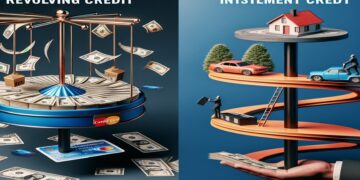
Difference between fixed income and variable income
Understanding fixed and variable income is essential for effective investing. Fixed income offers stability and predictable returns, ideal for risk-averse investors, while variable income presents higher growth potential amidst increased risk. Balancing both types in a diversified portfolio can help align investments with financial goals and risk tolerance.

How to start investing with little money
Investing is accessible to everyone, even with limited funds. By starting early, utilizing micro-investing apps, and embracing low-cost options like index funds or robo-advisors, individuals can gradually build their portfolios. Patience and consistent saving are key to achieving long-term financial growth. Small steps today lead to a secure future.

How to Protect Your Financial Information Online
In today's digital age, protecting your financial information is essential due to rising cyber threats. Key strategies include using strong passwords, enabling two-factor authentication, managing your digital footprint, avoiding public Wi-Fi for transactions, and exercising caution with mobile apps. Being proactive enhances your online security and safeguards your assets.

What is a credit score and how is it calculated?
A credit score is essential for assessing financial reliability, impacting loans, rentals, and even job prospects. It is determined by factors such as payment history, credit utilization, and account diversity. Understanding and improving your score can lead to better financial opportunities and stability.

What to consider before applying for a business credit card
Navigating business credit cards requires understanding your credit score, evaluating fees, and assessing rewards programs. Careful consideration of your business needs and spending habits can guide you to the right card, enhancing financial health while avoiding debt pitfalls. Responsible use will support your business's growth and sustainability.

How to cancel a credit card without harming your score
Canceling a credit card doesn't have to hurt your credit score. By understanding factors like credit utilization and account age, and following strategic steps such as paying off balances and monitoring your credit report, you can navigate the process effectively while safeguarding your financial health.

How to Deal with Financial Unexpected Events Without Going Into Debt
Life can present unexpected financial challenges that threaten stability. To navigate these situations without accruing debt, it's essential to build an emergency fund, assess your budget, explore assistance options, and understand credit. Proactive habits and flexibility are key to maintaining financial health amid uncertainties.

Steps to Build a Solid Emergency Fund
Building an emergency fund is vital for financial security, especially in unpredictable times. Start by assessing your expenses and setting realistic savings goals. Choose a high-interest account and automate contributions for consistent growth. Regularly review your fund to adapt to life changes and ensure lasting peace of mind.

Difference between revolving credit and installment credit
Understanding the difference between revolving credit and installment credit is essential for effective financial management. Revolving credit offers flexible borrowing, useful for daily expenses, while installment credit provides structured repayment for larger purchases. Each type has unique advantages, impacting budgeting, credit scores, and financial planning decisions.

How compound interest works and its importance in finance
This article explains the essential concept of compound interest, which accelerates wealth growth by earning interest on both the principal and previous interest. It highlights its significance for savers, investors, and retirement planning, emphasizing early investment and informed financial decisions to maximize growth and avoid debt pitfalls.